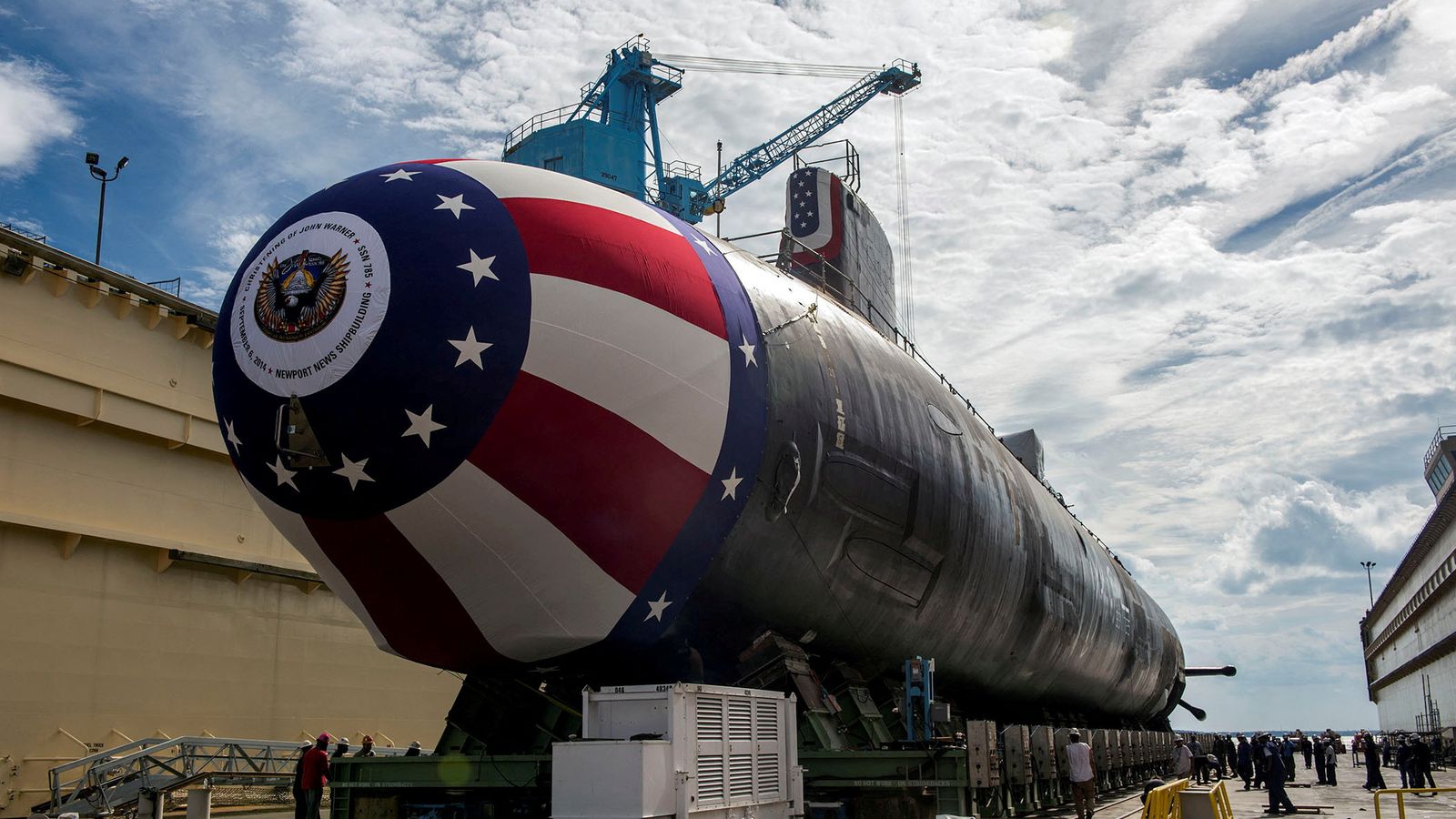The AUKUS pact between the UK, US and Australia to create a new fleet of nuclear-powered submarines to patrol the Pacific Ocean is not popular everywhere, including with a key NATO ally.
Rishi Sunak is heading back from San Diego, where he spent time chatting with President Joe Biden and Australian premier Anthony Albanese about the next stage of the deal.
So what is the submarine pact all about, and is criticism of it simply “raucous squawkus from the anti-AUKUS caucus”?
What is the AUKUS agreement?
The UK, US and Australia announced the “landmark” partnership to boost their defences and share nuclear submarine secrets in September 2021.
It comes at a time of growing concerns over Chinese activities in the Pacific Ocean.
AUKUS will initially focus on helping Australia procure multibillion-pound fleet of nuclear-powered submarines.
An arrangement for Australia to acquire the submarines was announced on Monday as the leaders met in California.
While the subs will be powered with nuclear material, they will be armed with conventional – not nuclear – weapons.
Additionally, beginning in the early 2030s and pending approval from the US Congress, the US also intends to sell Australia three Virginia class submarines, with the potential to sell up to two more if needed.
So is it just a way for Australia to get some submarines?
Not quite. While the initial focus has been on helping Canberra get hold of a new fleet of submarines, the scope of the AUKUS partnership is broader.
According to an AUKUS briefing document, the aim is for the three nations to provide an “assured undersea capability” that “contributes to stability, peace, and prosperity in the Indo-Pacific and around the world”.
The UK, US and Australia will also seek to collaborate in cyber, quantum technologies and artificial intelligence as well as other underwater capabilities – areas in which Western democracies are frantically racing their authoritarian rivals to dominate.
Beginning this year, Australian military and civilian personnel will embed with the US and UK navies in order to accelerate their training and development.
From 2027 (at the earliest) the UK and the US will also station submarines at HMAS Stirling base near Perth.
Please use Chrome browser for a more accessible video player
What has China said about AUKUS?
China has been vocal in its opposition to the AUKUS deal from the beginning – unsurprising given the partnership is designed to counter Beijing’s influence at sea.
Shortly after it was announced in September 2021, China said the security deal “intensifies the arms race” and “jeopardises the international efforts in promoting the non-proliferation of nuclear weapons”.
Chinese Foreign Ministry spokesman Zhao Lijian added at the time: “The US and UK’s action of exporting highly sensitive nuclear submarine technology once again proves that they are using nuclear exports as a tool for geopolitical games and adapts double standards.
“This is a highly irresponsible act.”
Responding to the Sunak-Biden-Albanese summit this week, China reiterated its position and said the AUKUS nations have disregarded concerns of the international community and gone further down a dangerous road.
Wasn’t France meant to be providing Australia with submarines?
Yes indeed. Australia cancelled a big contract to buy French conventionally-powered submarines in favour of nuclear-powered subs built with US technology.
It’s safe to say this move did not go down well in Paris, which is of course a NATO ally of the UK and US.
France recalled its ambassadors to the US and Australia in an extraordinary diplomatic rebuke.
Boris Johnson famously described opposition to the submarines pact as “raucous squawkus from the anti-AUKUS caucus”.
There were fears of a rift between the traditionally friendly nations, but the war in Ukraine has brought NATO countries back together.






















